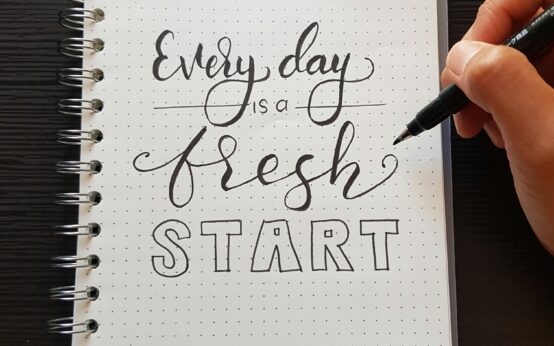Have you ever found yourself caught in the whirlwind of daily tasks, without a moment to truly breathe and be present? You are not alone. In our fast-paced world, it’s easy to get swept away by endless to-dos and distractions. Yet, amidst the chaos, there is a powerful tool that can ground you and enhance your daily life—mindfulness. Presenting the top 5 benefits of practicing mindfulness every day, this guide will illuminate how simple daily practices can have transformative effects on your overall well-being.
Understanding Mindfulness
Mindfulness is essentially about being fully present and engaged in the current moment without judgment or distraction. It’s about being aware of your thoughts, feelings, sensations, and the environment around you. This ancient practice has its roots in Buddhist traditions but has gained immense popularity in the West in recent decades, especially for its mental and physical health benefits. Let’s explore how incorporating mindfulness each day can benefit you.
1. Stress Reduction
One of the most remarkable benefits of practicing mindfulness daily is its ability to reduce stress. In today’s hectic world, stress is an almost unavoidable aspect of life. However, engaging in mindfulness can dramatically shift your relationship with stress. By being mindful, you acknowledge stressors in a calm and accepting manner, breaking the cycle of overwhelming thoughts and physiological responses.
How Mindfulness Alleviates Stress
Mindfulness encourages you to take deep breaths, focus on the moment, and release tension in your body. This process reduces cortisol, the stress hormone, leading to a calmer state of being. When you’re mindful, you are less likely to ruminate over past events or worry about future uncertainties. By being in the here and now, you actively reduce stress, allowing for greater clarity and peace of mind.
Everyday Mindfulness Techniques for Stress Reduction
Incorporate simple techniques, such as mindful breathing or body scan meditation, into your daily routine to manage stress effectively. When you feel anxiety creeping in, take a moment to breathe deeply, feel each inhalation and exhalation, and observe your thoughts without judgment. Doing so can transform the way stress impacts your life.
| Technique | Description |
|---|---|
| Mindful Breathing | Focus on your breath, noticing each inhale and exhale. |
| Body Scan Meditation | Slowly turn your attention to each part of your body, acknowledging sensations. |

2. Improved Focus and Concentration
In an era of digital distractions, maintaining focus can be a challenge. Daily mindfulness practice strengthens your attention span, allowing you to concentrate better and be more productive in every aspect of life—be it at work, in your studies, or during personal endeavors.
The Science Behind Improved Concentration
Research has shown that mindfulness exercises help in increasing the grey matter density in the brain, particularly in areas associated with attention and sensory processing. Regular mindfulness practice enhances your brain’s ability to concentrate, making it easier to focus on single tasks without becoming sidetracked.
Tips to Cultivate Daily Mindfulness for Better Focus
To enhance your focus, consider practicing mindful observation. Engage with a single object around you, notice every detail, color, and texture, without letting your mind wander. Similarly, incorporate mindful listening by fully tuning into the sounds around you, whether it’s music or conversations. Over time, these practices sharpen your ability to concentrate.
3. Enhanced Emotional Regulation
Emotions can be complex and challenging to manage. Practicing mindfulness daily equips you with tools that help regulate emotions, enabling you to respond thoughtfully rather than react impulsively.
How Mindfulness Influences Emotional Health
Being mindful developmentally fosters an enhanced awareness of your emotions. Through mindfulness, you learn to observe emotions without labeling them as good or bad. This non-judgmental awareness allows you to process emotions healthily, reducing feelings of anxiety and depression. You can approach emotional situations with greater balance and poise.
Steps for Using Mindfulness to Manage Emotions
Engage in practices such as noting, where you label emotions as they arise—enabling a clear distinction between thoughts and feelings. By recognizing patterns, you learn triggers and can develop healthier coping strategies.
| Practice | Implementation |
|---|---|
| Noting | Label emotions as they happen (e.g., “anger,” “joy”). |
| Mindful Journaling | Reflect on emotions and experiences in writing. |

4. Better Sleep Quality
Sleep is a cornerstone of good health, yet many struggle to achieve consistent, restorative sleep. Mindfulness practices can improve your sleep quality, allowing you to wake up refreshed and energized.
The Connection Between Mindfulness and Sleep
Mindfulness reduces stress and anxiety—common culprits of sleep disturbances—thereby preparing your body and mind for restful slumber. By calming the mind before bed, mindfulness aids in reducing the mental chatter that often keeps you awake at night.
Mindfulness Techniques for Better Sleep
Before sleeping, practice mindfulness meditations specifically aimed at promoting relaxation. Techniques such as progressive muscle relaxation or guided sleep meditation help your body transition into sleep. Establish a bedtime routine that includes turning off electronic devices, meditating, and performing gentle stretches to relax the body.
5. Greater Compassion and Kindness
Practicing mindfulness daily nurtures a profound sense of compassion and kindness towards yourself and others. This often leads to more fulfilling relationships and an overall happier, more empathetic outlook on life.
Fostering Compassion Through Mindfulness
By understanding your own experiences through mindfulness, you become more attuned to the experiences of others, promoting empathy and compassion. Mindful compassion practices emphasize self-kindness, acceptance, and understanding—qualities that naturally extend to those around you.
Simple Practices to Enhance Compassion
Engage in loving-kindness meditation, which focuses on sending well-wishes to yourself and others. Start by offering kind intentions to yourself, then extend these feelings outward to friends, family, and even challenging individuals in your life.
| Practice | Method |
|---|---|
| Loving-Kindness Meditation | Recite phrases of goodwill towards self and others. |
| Mindful Listening | Give full attention to others, listening without judgment. |

Incorporating Mindfulness Into Your Daily Life
To reap the benefits of mindfulness, you don’t need hours of meditation each day. Even a few minutes of mindful practice can lead to positive changes. Consider beginning your day with mindful breathing, and allow moments of mindfulness to permeate routine activities—whether it’s eating, walking, or engaging in conversations.
Start small and gradually increase the length and frequency of your mindfulness sessions. Incorporate mindfulness apps or online resources to guide your practice if needed. By creating a consistent mindfulness practice, you build a greater sense of awareness, calm, and presence.
Mindfulness and You: A Journey of Growth
Integrating mindfulness into your daily habits opens the door to remarkable personal growth. Embrace the chance to be fully present, and witness how it transforms your stress levels, focus, emotional health, sleep, and compassion. As you embark on this enriching journey, you’ll find that the benefits of mindfulness don’t just elevate your life—they illuminate it with clarity and peace.
Ultimately, mindfulness is a gift you give to yourself each day, enhancing not only your life but also the lives of those around you. Dive into the journey of mindfulness and discover the profound impact it can have on your well-being.

 10 Simple Self-Care Practices For Stress Relief
10 Simple Self-Care Practices For Stress Relief  How To Create A Mindfulness Routine For Beginners
How To Create A Mindfulness Routine For Beginners  How To Incorporate Self Care Into Your Daily Life
How To Incorporate Self Care Into Your Daily Life  The Best Mindfulness Apps To Enhance Your Practice
The Best Mindfulness Apps To Enhance Your Practice  Self Care Ideas You Can Do At Home
Self Care Ideas You Can Do At Home  How To Practice Self Compassion: Tips And Techniques
How To Practice Self Compassion: Tips And Techniques  How To Create A Skincare Routine For Oily Skin
How To Create A Skincare Routine For Oily Skin  The Best Ingredients For Anti-Aging Skincare
The Best Ingredients For Anti-Aging Skincare  10 Skincare Myths That Are Wrecking Your Glow—Debunked by Experts
10 Skincare Myths That Are Wrecking Your Glow—Debunked by Experts  Natural Skincare 101: Everything you Need to Know
Natural Skincare 101: Everything you Need to Know  The Ultimate Guide To Sunscreen: What You Need To Know
The Ultimate Guide To Sunscreen: What You Need To Know  Best Anti-Acne Products: A Comprehensive Buyers Guide
Best Anti-Acne Products: A Comprehensive Buyers Guide